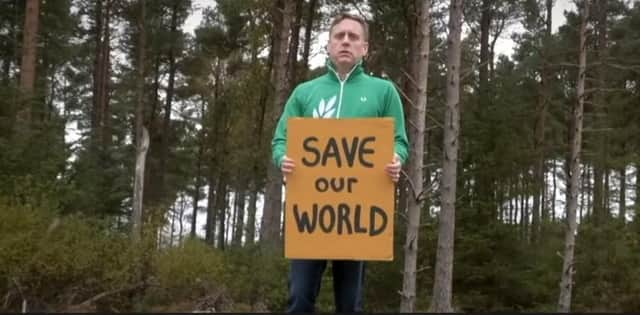COP26: Denny singer collaborates with Rwandan artist in song to inspire hope


The Stirling-bornmusician has engaged in human rights activism for years, having released an anti-racist song following on from the death of George Floyd in 2020.
The song features backing vocals and a verse from Swiss-based Rwandan artist, Ras Ngabo, lending to the international theme of uniting against climate change.
Advertisement
Hide AdAdvertisement
Hide AdOn his connection with Ras, Iain said: “We had a mutual friend through another African artist, and we spoke when he told me he wanted to work with me.
“He sent through the music for the track and I knew right away that I wanted the song to be about climate change.
“I’ve always been a fan of classic reggae like Bob Marley, and all good reggae calls for political change. Although the high vocals were inspired by Ska, particularly Ghost Town by The Specials.
“We wanted to spread a positive message with hopeful music, putting across our message verbally and simply.”
Advertisement
Hide AdAdvertisement
Hide AdIain previously performed at an event for Nelson Mandela in front of the House of Parliament alongside artists like Jean Paul Samputu and Heather Small.
He outlined the production of his COP26 song.
“We started production a few months ago, but it all came together in the last few weeks.
“I was inspired to write the song as I have two young daughters and I want to guarantee a future for them, and for their children.”
“Most of the scenes were filmed in Burntisland, with short clips of residents on the High Street calling out to ‘save our world’.
Advertisement
Hide AdAdvertisement
Hide AdHe said: “We’re living in a momentous time, all eyes our on Scotland and COP26 may very well be the last hope for the world.
“I felt the need to vocalise this through our song, the change has to come from us - people have to demand change now.
“I think we’re all very nervous - my hope is that my music can inspire people to keep up the momentum of demanding change, and keep in mind what’s better for the people - rather than the economy.”
